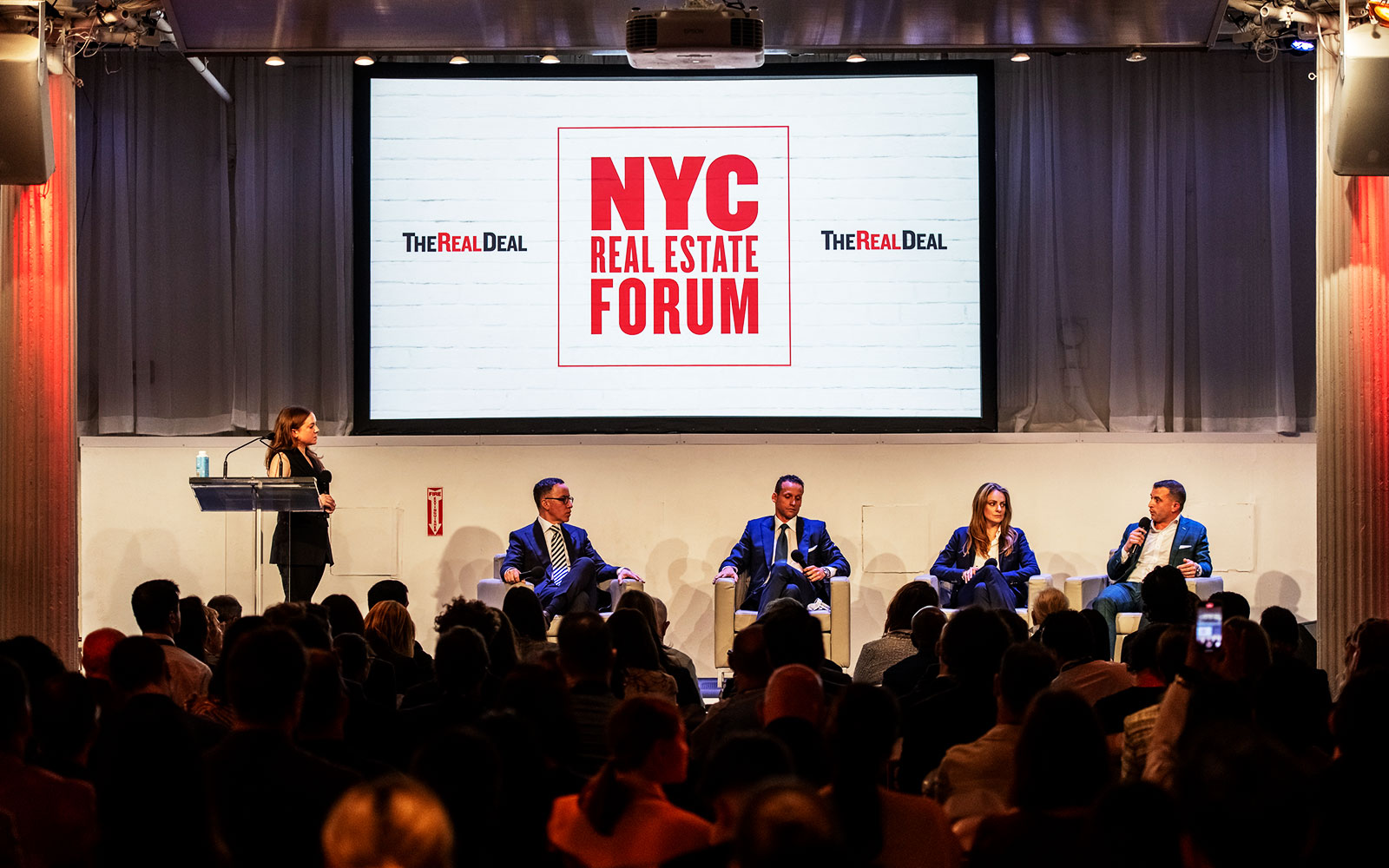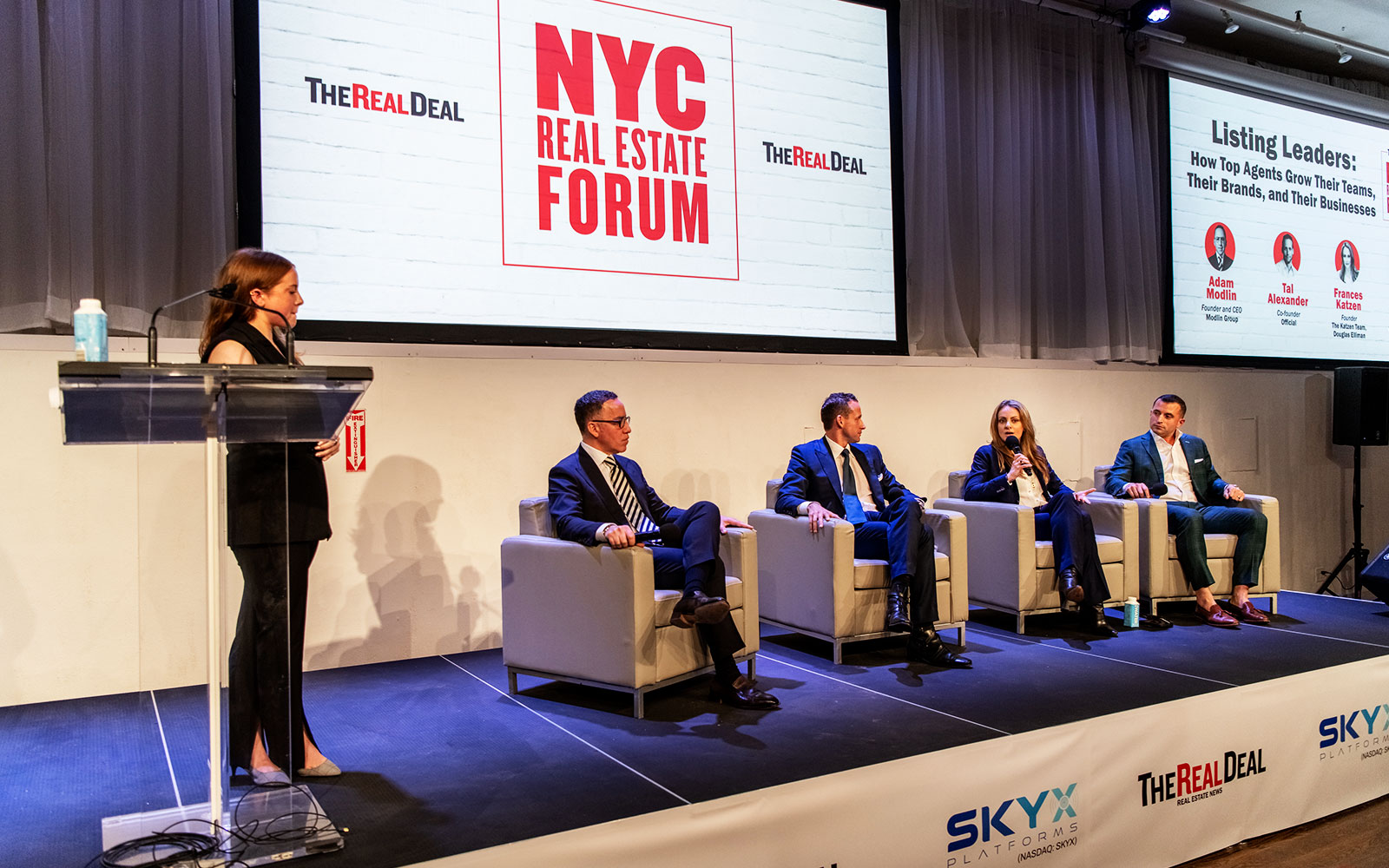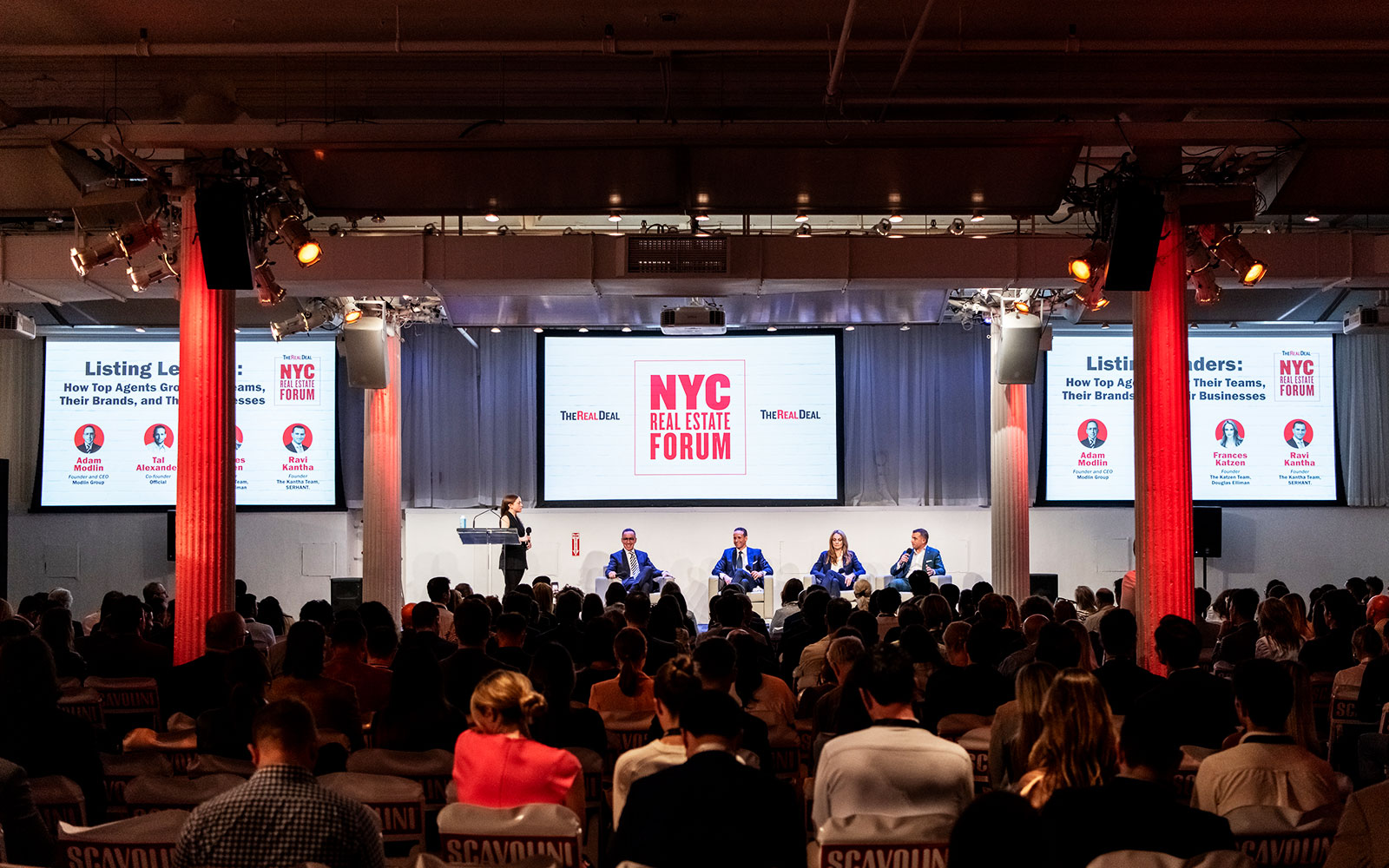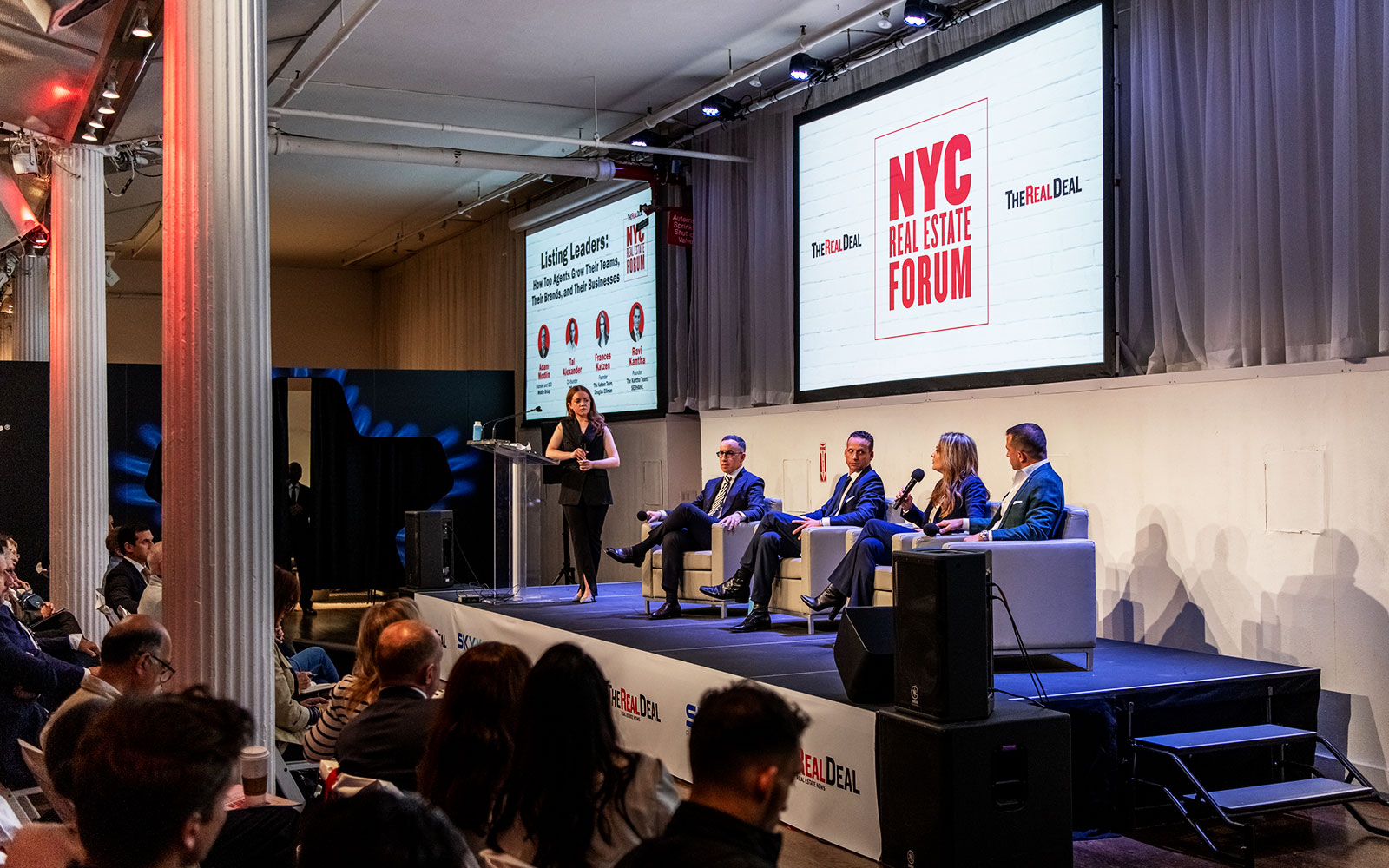For New York City’s luxury brokers, the road to the top is paved with tough conversations.
As the industry grapples with a stagnant market, top agents at The Real Deal’s New York City Showcase + Forum said they’re pushing developers to get realistic about their projects in the current climate.
“It is a reckoning time,” said Douglas Elliman’s Frances Katzen, whose team placed 21st in TRD’s 2023 ranking of the top new development brokers in the city.
Rising mortgage rates and economic uncertainty stifled sales last year, and new developments were no exception. Contract signings for new condos dipped 8 percent from 2022, and new development sales volume was down 10 percent, according to data from Marketproof.
Hope for an upward swing in the market has also drifted further into the future, along with the Federal Reserve’s decision to delay the impending interest rate cuts it announced at the end of last year.
With recovery still in the distant horizon, Katzen said the market challenges are pushing developers to be practical about their bottom lines, with some holding back units to rent instead of sell.
“You need to be very blunt about what needs to be done,” said Serhant’s Ravi Kantha, who previously co-led a team of top townhouse specialists at Leslie J. Garfield. “It’s a delicate line to walk.”
New development inventory is scarce, and the pipeline for new projects is drying up, adding another obstacle for brokers trading in this space.
But Katzen projected a comeback, pointing to the Vornado-Rudin-Griffin office tower at 350 Park Avenue.
“Most developers feel like New York is in a malaise right now,” Katzen said. “But they’re coming back.”
In previous periods of tight inventory, brokers and buyers may have turned to Brooklyn. But the borough has grown from a value alternative to a primary destination, where large apartments and renovated townhouses are few and far between, Kantha said.
“[Brooklyn’s] definitely having a moment,” Kantha said. He added that some of the same buyers he represents are bidding on $20 million townhouses in the West Village and in brownstone Brooklyn.
With scarce inventory across the city, brokers are turning to the areas with the most promise. For Adam Modlin — who heads his own brokerage, the Modlin Group — that neighborhood is the Upper East Side.
“For many years, [high-end] buyers wanted downtown, and of course they still do,” said Modlin, who brokered the city’s priciest deal last year, an $80 million resale at 220 Central Park South.
He added that “[There’s] a huge resurgence in the Upper East Side” with some buyers trading downtown for uptown or adding homes in the neighborhood to their portfolios.
But the key to surviving at the top of the city’s market is having a trove of off-market listings, which are becoming increasingly common, according to Tal Alexander, the co-founder of Official backed by Side.
“I don’t think buyers are calling me because I can show them what’s on Zillow,” Alexander said. Instead, they’re asking for what he calls his “intellectual property” — an extensive knowledge of off-market listings.
Alexander said he’s able to clearly articulate that value to clients, a conversation which is now more important than ever as landmark antitrust settlements are changing long-held industry practices around commissions and buyer’s agents.
Headlines about the fallout from the lawsuits are prompting questions from clients, and brokers are having to contend with explaining the nuances of the New York City market, which doesn’t have a multiple listings service that would fall underneath the terms of the National Association of Realtors’ new rule changes.
“Why are we in New York acquiescing to the [lawsuits]” said Katzen, whose own firm, Douglas Elliman, agreed to settle litigation brought by home sellers.
She added that the New York firms that opted to resolve claims are “giving the appearance that we’ve done something wrong when we haven’t.”
Though the lawsuits threaten to upend how agents are paid commissions, the top brokers agreed that for the most part, business in New York would continue as usual.
“There are questions about [the lawsuits], and these are good conversations to have,” Modlin said. “We want transparency.”
Read more








